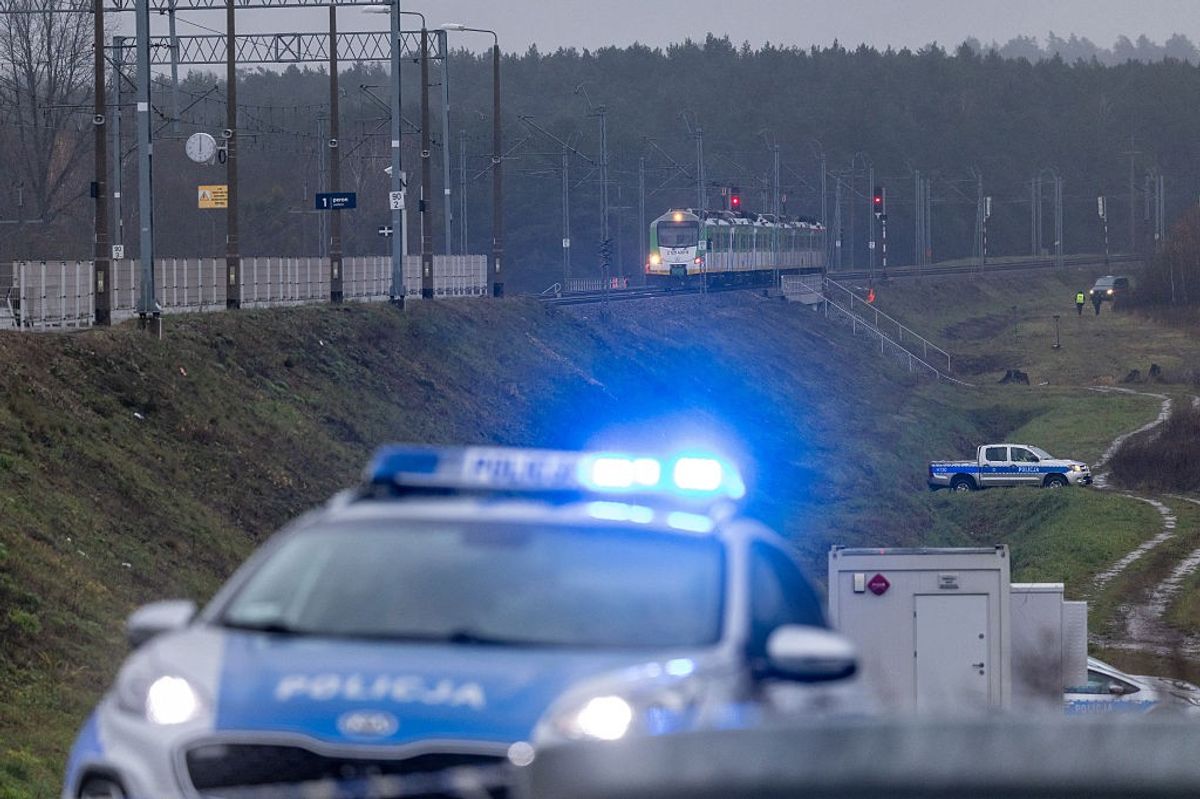OPINION — President Trump’s recent decision to halt intelligence sharing with Ukraine has presented Europe with an urgent problem. Not only did the move temporarily put Kyiv – reliant on the U.S. for all manner of critical combat data – in a precarious military position, but it also brought into question the reliability of the American intelligence community as a strategic ally. The U.S. and Europe have been close espionage partners for decades, and the relationship has typically been impervious to even the sternest political challenges. Yet despite a long and intimate history, the survival of the Euro-American intelligence relationship can no longer be taken for granted.
As one of the authors has written, the relationships between intelligence services – known in the business as liaisons – are a crucial part of international diplomacy. The exchange of classified material requires deep levels of trust established through the right combination of shared circumstances, similar espionage cultures, and personal relationships between intelligence professionals. As the Trump administration redefines American national interests away from Europe, fires hundreds of Intelligence Community (IC) staff, and installs loyalists to top positions, it brings a worrying fragility to the very framework that has kept transatlantic cooperation so strong. Dependent on Washington for essential intelligence streams, European leaders must prepare for what was once deemed impossible: a rupture in the transatlantic liaison
A long and valued history
Washington’s espionage relationship with Europe has often been considered a perpetual fact of international politics. Viewing intelligence liaison through a framework of circumstances, shared culture, and personal relations can demonstrate just how strong – and just how long-standing – the partnership has been. Forged in the fires of the Second World War, intelligence cooperation has been at the heart of America’s most special relationships and has previously transcended developments in domestic politics and an evolving security landscape throughout the Cold War, the War on Terror, and the new age of great power competition.
Consider the moment in 1973 when Henry Kissinger told the NSA to stop sharing signals intelligence with GCHQ (Britain’s Government Communications Headquarters) to force Britain to fall in line over the Middle East. The NSA balked at the demand, telling Kissinger, in effect, to “drop dead.” Or the time in 2003, when the then Director of the NSA, General Michael Hayden, told Sir David Pepper, his counterpart at GCHQ, that should the NSA be crippled by terrorists, the U.S. would turn ‘the functioning of the American [signals intelligence] system over to GCHQ.’ Or, just last year, when the Director of the CIA, William Burns, and the Chief of MI6, Richard Moore, shared a public stage together to profess that they had “no better foreign partners in the world” than each other.
Such anecdotes illustrate how the framework underpinning Anglo-American intelligence liaison has been unaffected by war and high politics – and the same is true for Washington’s relationships with the rest of the continent. Built on decades of trust, the shadowy relationship has weathered the most shocking spats and scandals. Former Acting Director of Central Intelligence John McLaughlin claimed the relationship with the French DGSE was one of the closest in the world, even during the divisive time prior to the 2003 U.S. invasion of Iraq. The American intelligence community’s cooperation with Germany similarly survived revelations that the NSA had tapped Angela Merkel’s phone and claims that Berlin had returned the favor on John Kerry.
Everyone needs a good nightcap. Ours happens to come in the form of a M-F newsletter that provides the best way to unwind while staying up to speed on national security. Sign up today.
The transatlantic benefits
This cooperation has not just been about shadowy relationships and sharing secrets – it has been a crucial component in both European and American foreign and security policy. As the former CIA officer and analyst turned academic David Gioe has recently highlighted, intelligence liaison has been a “force multiplication” that is now essential to navigating the current instability in global order. Take, for example, the CIA’s role in foiling a recent terror plot at a music concert in Vienna, or how British intelligence helped the U.S. foresee Putin’s full-scale invasion of Ukraine in 2022.
The benefits of effective intelligence liaison are undeniable. It allows partners and allies to cooperate on targets, expand coverage of networks, and exchange notes on assessments and forecasts. A former senior CIA officer told the authors that these relationships have been very useful for the US, offering windows into issues that Washington may otherwise not have had. In essence, they have made resources go further and faster. Nevertheless, as reliable and important as such liaison has been for both Europe and the U.S., Trump’s return threatens to erode the framework of circumstances, culture, and personal relations in almost unprecedented ways.
With the days of the Cold War and the War on Terror now gone, the White House appears to have little interest in sharing the same strategic circumstances as its European allies. On the one hand, the new administration is signalling a transition to an Indo Pacific-focused grand strategy and an end to its guarantee of European security. On the other, the President’s conciliatory approach toward the Kremlin, such as considering the unilateral easing of sanctions or ordering an end to offensive cyber operations against Russia, would suggest Europe’s changing circumstances could get substantially worse.
Furthermore, the American intelligence community is undergoing a transformation to its culture which makes it largely incompatible with its European counterparts, with the Trump administration demanding a greater focus on narcotics and covert action. And even the personal relationships between intelligence officers which have calmly navigated previous political tumult are now disintegrating. Mass firings and the arrival of Trump loyalists to top intelligence positions will likely do damage to many of the webs that have kept American officers and analysts so close to their European counterparts.
This is not to say that the spigot which has supplied both Europe and the U.S. with crucial intelligence streams will suddenly be turned off – far from it. Washington still shares the same security concerns over China and non-state terrorism. Coordinated signals intelligence capabilities are also irreversibly bound by shared technological infrastructure, making ideas about “thinking twice” before sharing all intelligence with the U.S. much easier said than done.
Yet, if the past month has taught us anything, it is that rapid geopolitical change is pushing the old transatlantic alliance to the brink of irrelevancy and forcing European nations to reconsider Washington’s future as an ally. Though a downgrade in intelligence liaison makes Americans more unsafe, the threats to European security are far graver. If European policymakers and intelligence professionals fear losing the framework that has upheld their U.S. liaison, they must create unique measures to Trump-proof continental intelligence. We offer four suggestions on how to do so.
The intersection of technology, defense, space and intelligence is critical to future U.S. national security. Join The Cipher Brief on June 5th and 6th in Austin, Texas for the NatSecEDGE conference. Find out how to get an invitation to this invite-only event at natsecedge.com
A way forward
First, budgets for Europe’s intelligence services must also be raised as a part of a wider spending increase on defence. Taking more money away from social programs may be politically unpalatable during a time of economic strife, yet the present security threats have produced a moment of necessity. As some European leaders put together new financial plans to boost defense spending, they should remember that military effectiveness relies heavily on intelligence, and that without improved intelligence their new investments could be wasted.
Second, while spending is important, it alone cannot solve the problems at hand, especially when many European nations are hampered by diminished budgets. Any new investment must be prioritized in areas which demand urgent attention. Russian aggression is clearly the primary concern, but addressing this challenge requires more than simply assessing Moscow’s military capabilities and strategy. Cyber-attacks and undersea cable sabotage are components of an evolving hybrid threat which requires increased expertise. If European troops are to step into Ukraine as peacekeepers, there will also be a requirement to refocus on early warning.
Third, European nations must establish new, boutique partnerships for sharing intelligence outside of their traditional liaison networks. Discussion of a pan-European intelligence service is misguided, however this should not preclude leaders from expanding bilateral or minilateral relationships to focus on certain threats or geographical areas. Norway and the UK's recent agreement to increase intelligence cooperation on maritime sabotage in the North Sea should be a reference. These deals can also help states bypass concerns about sharing classified material with untrustworthy partners inside NATO.
Fourth, a refreshed focus on industrial sabotage and cyber-attacks endears itself to greater collaboration with private intelligence companies and other businesses. Such corporations are a part of a burgeoning industry built on the boom in digital data. Rather than seeing them as trespassing on the grounds of traditional state espionage, policymakers in Europe must look to these companies as a new, and mostly untapped, source of intelligence. Eager to collaborate, they can bring cutting-edge expertise and innovative methods and help broaden Europe’s intelligence community.
Europe has been dependent on the U.S. for its security for too long. Whatever one may think of the approach taken by the Trump administration, it is forcing European policymakers to turn easy statements into difficult actions as they confront potentially foundational challenges. Though Washington will likely remain as an intelligence partner, the framework of strategic circumstances, shared espionage cultures, and personal relationships cannot be relied upon indefinitely. Now is the time for Europe to strengthen its espionage capabilities.
The Cipher Brief is committed to publishing a range of perspectives on national security issues submitted by deeply experienced national security professionals.
Opinions expressed are those of the author and do not represent the views or opinions of The Cipher Brief.
Have a perspective to share based on your experience in the national security field? Send it to Editor@thecipherbrief.com for publication consideration.
Read more expert-driven national security insights, perspective and analysis in The Cipher Brief
















